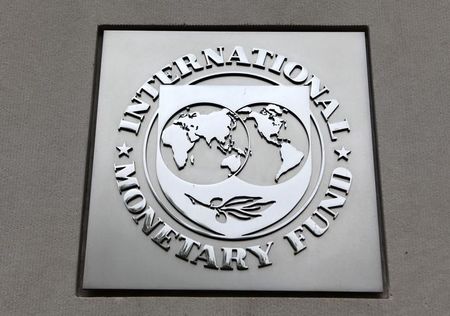By Jan Strupczewski and Krista Hughes
WASHINGTON (Reuters) - Alarmed by faltering euro zone growth, top finance officials from around the globe on Friday were expected to press their European peers for action to avert a recession and ward off deflation.
The International Monetary Fund, which cut its global growth forecasts for the third time this year earlier this week, said Europe's weakness was a matter of particular concern.
"I think there will be lots of pressure on Europe at the meetings here in Washington, people are worried not only in Europe but also in other parts of the world about the low inflation, and low growth," Jyrki Katainen, European Commission's incoming vice president, told Reuters.
Alongside the annual meetings of the IMF and the World Bank, the Group of 20 that represents major industrial and developing powers and 85 percent of world economic output also meets on Friday, just weeks after gathering in Australia.
That meeting agreed on a plan to prop up global growth over the coming years largely via targeted public investment in infrastructure. But since then fresh evidence of weakness in the euro zone economy, including its powerhouse Germany, has unsettled financial markets and heightened the sense of urgency.
"The Europeans are a bit surprised how quickly they came back under pressure and into the spotlight after the sovereign debt crisis," one euro zone official said.
German exports, industrial orders and output suffered their sharpest declines since the depths of the global financial crisis, data showed earlier this week, raising the specter of Europe's biggest economy slipping into recession.
The darkening global outlook has rattled investors.
Global shares hit a six-month low on Friday, while oil prices skidded to their lowest level since 2010. After a long rally, the U.S. dollar was poised for its first weekly drop in three months as traders ramped up bets that the Federal Reserve would have to delay tightening U.S. monetary policy.
"It's panic mode. Panic and capitulation," said Carsten Fritsch, commodities analyst at Commerzbank.
GERMANY IN FOCUS
While other euro zone governments are hamstrung by excessive debt and fiscal deficits, the IMF, the United States and other G20 members have repeatedly called on Germany to use its wiggle room to ramp up spending and shore up sagging growth.
This week the country's leading economic institutes joined the chorus, urging the government to cut corporate taxes, spend more on infrastructure and education, and take steps to encourage private investment.
Berlin, however, has consistently rejected such calls and maintained its commitment to the goal of balancing the federal budget next year.
Finance Minister Wolfgang Schaeuble repeated in Washington his mantra that Europe needed economic reforms not "writing checks." Yet evidence of further weakness and a threat of recession might still force Berlin's hand, senior officials told Reuters earlier this week.
Bundesbank President Jens Weidmann, a member of the European Central Bank's governing council, also chimed in, telling reporters that Germany will keep warning its partners about the risks of short-term fiscal stimulus.
Katainen, who will be responsible for growth, jobs, investment and competitiveness told Reuters on Thursday that many countries have cut investment too much and should be spending more, not just as matter of near-term stimulus but also to ensure long-term growth.

He said not just Germany but also France and Italy should be ramping up investment. Unlike Germany, however, other countries could not simply borrow more but would need to reshuffle spending and revenues within their budget bounds, he added.
(Writing by Tomasz Janowski; Editing by Tim Ahmann)
